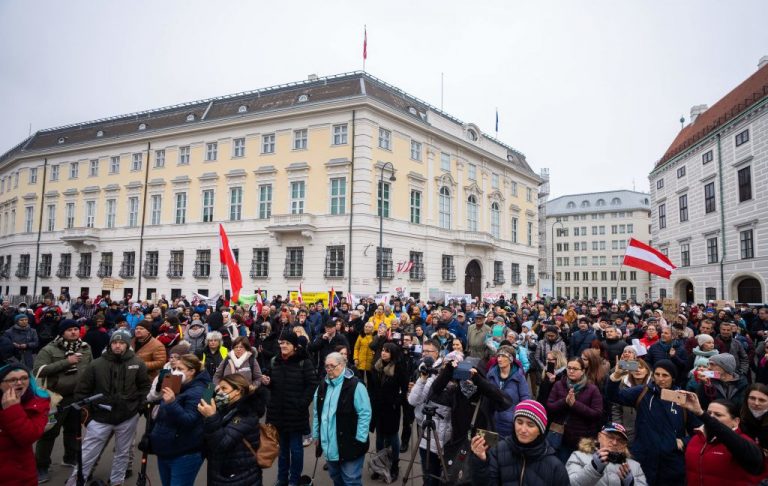Austria is back under lockdown in order to control the COVID-19 pandemic. But this time, only unvaccinated citizens will be restricted.
Starting Nov. 15, all unvaccinated individuals over the age of 12 have been instructed to remain indoors. People going to work or purchasing essential items are exempted. The current lockdown is scheduled for ten days and will not be applicable to vaccinated people and those who have recently recovered from the infection.
The Austrian Health ministry released a statement declaring that unvaccinated individuals found in violation of the stipulated lockdown restrictions would be liable to pay fines of up to 500 euros (US$567). Penalties of up to 1450 euros (US$1,646) could be charged to people who are not willing to participate in the random checks carried out by police. The checks aim to verify the vaccination status of individuals.
The lockdown is a response to a recent surge in infections in Austria. Intensive care units around the country are starting to come under pressure.
“In reality, we have told one-third of the population: You will not leave your apartment anymore apart from for certain reasons. That is a massive reduction in contacts between the vaccinated and the unvaccinated,” Chancellor Alexander Schallenberg said at a news conference.
Success
You are now signed up for our newsletter
Success
Check your email to complete sign up
Sixty-five percent of the Austrian population has already been fully vaccinated; two million individuals remain unvaccinated. Austria has one of the lowest vaccination rates among Western European nations.
It also has one of Europe’s highest infection rates at 815 per 100,000 on a seven-day incidence. Before the new rules against unvaccinated individuals came into effect, there was a last-minute rush over the weekend at vaccination centers.
With COVID-19 surging again through Europe, other countries are also considering reinstating lockdown protocols. Austria is among the first in Europe to implement movement restrictions to the same degree as before the vaccinations began. Austria has been categorized as a high-risk zone by Germany. This is seen as a big setback for Austria’s tourism industry since the winter season typically attracts many tourists.
Hundreds of people were out in the streets and outside the chancellery in Vienna over the weekend protesting the new lockdown measures. Many of the protestors insisted that their personal rights were being violated.
In an interview with the BBC, Professor Eva Schernhammer from the Medical University of Vienna said that the measures announced by the Austrian government were, in fact, necessary since intensive care units were already being filled to capacity. “It’s already projected that within two weeks, we’ll have reached the limit,” she said.
However, the Freedom Party in Austria has criticized the new lockdown measures, stating that the new rules would create a group of second-class citizens who would be subjected to harassment and humiliation in public spaces. Some have even questioned the constitutionality of the restrictions imposed on unvaccinated individuals.
Austria’s neighbor Germany is also considering strict measures as COVID-19 cases are once again on the rise. The state and federal government leaders are scheduled to meet next week to potentially create a road map to navigate around the current COVID-19 situation. At the meeting, they will decide what level of restrictions need to be put in place.














